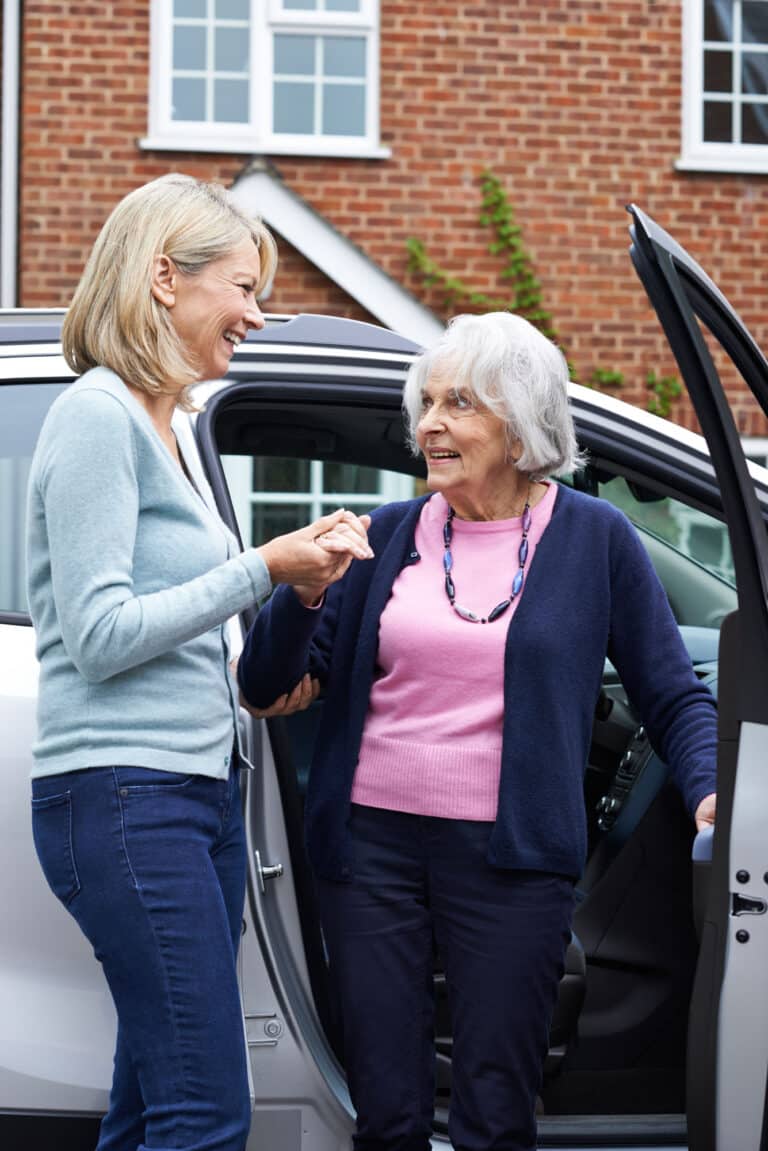The first week of December is designated as Older Driver Safety Awareness Week. This observed week isn’t created to remove older drivers from the roads. But it hopefully opens up communication between older drivers and their concerned families when it seems that they might not be able to drive safely all the time anymore.
For some, it may mean restricting driving, such as not driving at night or for long distances. Others might require adaptive devices to help them drive safely, such as if they’ve lost some hearing or cannot sit comfortably long enough to drive without pain. Another option is getting home care services to help your senior around the house and get to activities and appointments.
Many Factors Can Lead to Unsafe Driving in Seniors
Many normal aspects of aging may make driving more difficult for your elderly loved one. It can become more difficult at night as the eyes struggle to see well in unlit conditions. Aging can make driving to new areas more complicated if your loved one struggles with following new directions or navigating unknown streets.
Numerous health conditions could make driving suddenly unsafe, even if your loved one feels fine behind the wheel, requiring assistance from home care or family caregivers.
Medical Conditions That May Make Driving Unsafe
If your loved one has any recent medical conditions that affect his daily living, you should consider how these conditions could also affect his driving. From disease symptoms to the medications needed to manage the disease, they may all create a situation where getting behind the wheel is no longer safe for your loved one or the other people on the road.
Cardiovascular Disease
Some cardiac conditions can make it unsafe for your elderly loved one to drive. If he has arrhythmias that cause him to momentarily lose consciousness or if he’s recently received a pacemaker or implant, he may not be able to drive.
In addition, chronic heart conditions often cause the patient to feel extremely fatigued, making nodding off behind the wheel or having a slower reaction time to roadway changes dangerously likely.
Sleep Problems
Driving while sleepy is dangerous at every age, and unfortunately, some seniors develop insomnia, which affects not only their sleeping but also their awake hours. Driving while drowsy can slow reaction times and impair judgment.
Diabetes with Neuropathy (the loss of feeling in hands and feet due to nerve damage)
Not being able to properly feel the pressure on the brake or gas is dangerous, and your loved one should not attempt to drive. Neuropathy in the hands may make it difficult to turn the steering wheel or use other parts of the car while driving.
Make Plans for Safe Transporation with Home Care Assistance
No one wants to lose the ability to go places and get things done, but your elderly loved one may need to be told he cannot drive himself anymore. Finding safe transportation options is vital to ensuring that he’s comfortable letting someone else do the driving.
A home care provider can be a great resource for transportation. With a home care provider, your loved one will have a familiar face and trusted resource to drive him to all of the places he needs to be safe. Knowing this will help him resist the urge to get behind the wheel.
If you or an aging loved one are considering Home Care in La Jolla, CA, please contact the caring staff at A Caring Touch Home Care today. Call (619) 344-0528
A Caring Touch Home Care is a Trusted Home Care Agency providing exceptional home care in Coronado, Del Mar/Del Mar Heights, Bonita, East Lake, La Jolla, Torrey Pines, Mt. Helix/La Mesa, Carlsbad, Oceanside, Carmel Ranch, Rancho Penasquitos, Point Loma, Rancho Santa Fe, San Diego and surrounding areas.
- A Night of Powerful Storytelling: San Diego Latino Film Festival & “Arranca” - March 27, 2025
- The Importance of Consistency When It Comes to Eating - March 24, 2025
- Why Your Senior Parent Needs Help At Night - March 7, 2025







